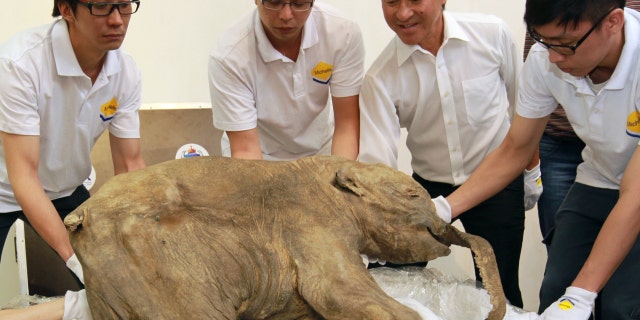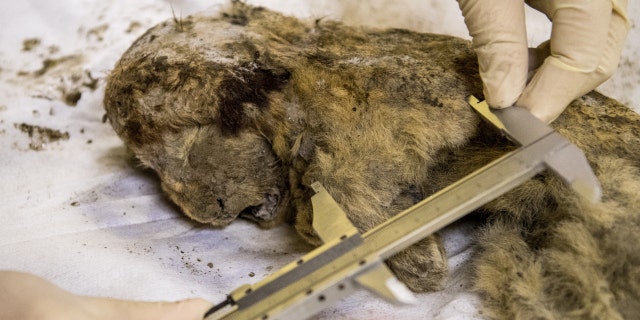
The Scientific Community seems determined to create a zombie apocalypse, and while the mainstream media keep scoffing at the idea they continually print stories like this one that keep the topic fresh in the minds of the public.
There is so much evidence that the scientific community and the medical industry are not interested in our well-being. People need to wake up and smell the coffee. The only way anyone could possibly have confidence in these folks is if they are mind controlled or brain dead! Harsh words, I understand, but if you are not brain dead and you still think that these folks are working on your behalf, you need to consider the fact that you are being mind controlled.
This story came up on my radar this morning. I nearly passed it by because it seem so innocuous. BUT, God got a hold of me and showed me why it is important. NOTHING they put out in the media is there by accident folks. If you had time to break down every single story, you would find there is ALWAYS something there. Now we might not catch it when it is all just coded in numbers and symbols meant for the “in crowd”, but there is still a lot we can decipher with God’s help.
Here is what I was able to spot today. You may find more as you view it. Let me know if you do!
spacer
In case you have not already seen my previous posts on the ZOMBIE Apocalypse, check them out here:
spacer
Cannibal Zombie Apocalypse is FORMING
WHAT? ZOMBIES? FOR REAL?
Zombie Apocalypse
spacer
Scientists Warn of Possible ‘Public Health Threat’ After Reviving Ancient ‘Zombie | Watch (msn.com)

spacer
|
Archaea can be spherical, rod, spiral, lobed, rectangular or irregular in shape. An unusual flat, square-shaped species that lives in salty pools has also been discovered. Some exist as single cells, others form filaments or clusters. Until the 1970s this group of microbes was classified as bacteria. Archaea are a group of micro-organisms that are similar to, but evolutionarily distinct from bacteria. Many archaea have been found living in extreme environments, for example at high pressures, salt concentrations or temperatures. These types of organisms are called extremophiles. Their cell wall differs in structure from that of bacteria and is thought to be more stable in extreme conditions, helping to explain why some archaea can live in many of the most hostile environments on Earth. Examples of archaea habitats are boiling hot springs and geysers such as those found in Yellow Stone Park, USA and ice such as the Arctic and Antarctic oceans, which remain frozen for most of the year. |
|
Bacteria are microscopic infectious agents that have a long history of infecting humans, but they also play a vital role in supporting human health. bacteria inhabit various environments throughout the earth. They live virtually everywhere, including within our bodies. Most bacteria do not cause humans harm, but some can infect humans and cause disease. In fact, bacteria have caused some of the most devastating diseases in human history, such as the bubonic plague and dysentery. Bacteria are unicellular and prokaryotic, meaning they do not have a nucleus and are much simpler than eukaryotic cells. Also, unlike eukaryotic cells, most bacteria have a cell wall. The composition of the cell wall varies, and this variation helps scientists tell bacteria apart. The Gram stain helps scientists distinguish between bacteria types based on components of their cell walls. It is often used as a diagnostic test to determine what kind of bacteria is causing an infection. Although bacteria are diverse, they come in three major shapes: rod, sphere, and curved. Although bacteria can invade human bodies and cause disease, most bacteria are not harmful. Many bacteria live on our skin and in our digestive tract and make up our microbiome, or the populations of microbes coexisting in and on our bodies. This collection of bacteria keeps us healthy by synthesizing vitamins, helping us break down food, and preventing the growth of harmful bacteria. |
spacer
 spacer
spacer
As I was researching this portion I noticed something. PAN is deliberately presented in a manner that is meant to usurp the TRUE GOD. The references cannot be mistaken. It is very clear, the attributes of CHRIST/Messiah are the WORDS used in the definitions of PAN.
1. THE BREAD
2. THE SHEPHERD
3. THE COVERING
You have to know that they chose the name Pandoravirus very deliberately. They know full well what they are doing. Scientists are driven to push the envelope, regardless of the risks to human beings or to our environment. They know that by messing with these dangerous viruses opens up a literal pandora’s box.
35 And Jesus said unto them, I am the bread of life: he that cometh to me shall never hunger; and he that believeth on me shall never thirst. John 6:35
Meaning, origin and history of the name Pan – Behind the Name
Jan 21, 2022Usage Greek Mythology Scripts Πάν ( Ancient Greek) Pronounced PAN ( Classical Greek, English) [Meaning & History Possibly from the Indo-European root * peh- meaning “shepherd, protect“. In Greek mythology Pan was a half-man, half-goat god associated with shepherds, flocks and pastures. Categories
10 Verily, verily, I say unto you, He that entereth not by the door into the sheepfold, but climbeth up some other way, the same is a thief and a robber.
2 But he that entereth in by the door is the shepherd of the sheep.
3 To him the porter openeth; and the sheep hear his voice: and he calleth his own sheep by name, and leadeth them out.
4 And when he putteth forth his own sheep, he goeth before them, and the sheep follow him: for they know his voice.
5 And a stranger will they not follow, but will flee from him: for they know not the voice of strangers.
6 This parable spake Jesus unto them: but they understood not what things they were which he spake unto them.
7 Then said Jesus unto them again, Verily, verily, I say unto you, I am the door of the sheep.
8 All that ever came before me are thieves and robbers: but the sheep did not hear them.
9 I am the door: by me if any man enter in, he shall be saved, and shall go in and out, and find pasture.
10 The thief cometh not, but for to steal, and to kill, and to destroy: I am come that they might have life, and that they might have it more abundantly.
11 I am the good shepherd: the good shepherd giveth his life for the sheep.
12 But he that is an hireling, and not the shepherd, whose own the sheep are not, seeth the wolf coming, and leaveth the sheep, and fleeth: and the wolf catcheth them, and scattereth the sheep.
13 The hireling fleeth, because he is an hireling, and careth not for the sheep.
14 I am the good shepherd, and know my sheep, and am known of mine.
15 As the Father knoweth me, even so know I the Father: and I lay down my life for the sheep. John 10
\
pan- – Wiktionary
Jan 23, 2023 pan– Instrumentative case of the noun – a tool or an instrument that is used to perform the action expressed by the root pan– + takop (“a cover”) → pantakop (“an instrument used to cover something”) Czech [ edit] Prefix [ edit] pan– pan– Derived terms [ edit] Czech terms prefixed with pan– Further reading
I will say to the Lord, “My refuge and my fortress, my God, in whom I trust.” For he will deliver you from the snare of the fowler and from the deadly pestilence. He will cover you with his pinions, and under his wings you will find refuge; his faithfulness is a shield and buckler. Psalm 91:2-4spacer
Pan is pretty scary being.
Panic comes from the name of the ancient Greek god Pan, who is also reputed, in a very unsurprising twist, to have been the inventor of the panpipes. And although Pan is frequently depicted as a bacchanalian deity, one given to near-constant pursuit of revelry and female companionship, he also had a somewhat more ferocious side.
Pan was possessed of a stentorian voice, and it was said that when the ancient Greek gods were battling a horde of giants that Pan’s shout was so overwhelming that it instilled fear in the gods’ opponents, aiding in their eventual victory. He was said as well to have occasionally caused humans to flee in unreasoning fear, which is where the commonly used sense of panic comes from. Source
As the story goes, when Pandora’s curiosity got the best of her and she opened the box, unleashed sickness, sorrows, death, turmoil, strife, jealousy, hatred, famine and passion, and all the creeping things-curses from Zeus because Prometheus steals fire and gives it to humanity. These evils were to plague humankind in perpetuity,
Since Dora actually means all gifts from god, PAN is the god in reference.
Meaning, origin and history of the name Pandora
Meaning & History Means “all gifts”, derived from a combination of Greek πᾶν ( pan) meaning “all” and δῶρον ( doron) meaning “gift”. In Greek mythology Pandora was the first mortal woman. Zeus gave her a jar containing all of the troubles and ills that mankind now knows, and told her not to open it.
spacer
dora | Etymology, origin and meaning of the name dora by etymonline
Dorothy fem. proper name, from French Dorothée, from Latin Dorothea, from Greek, literally “gift of God,” from dōron “gift” (from PIE root *do- “to give”) + fem. of theos “god” (from PIE root *dhes-, forming words for religious concepts). With the elements reversed, it becomes Theodora. The accessory called a Dorothy bag is so called from 1907.
spacer
Dora (given name) – Wikipedia
Dora ( Greek: Δώρα) is a female name of Greek origin, being a shortened form or derived from Dorothea ( Dorothy) and Theodora (masculine Theodore ), [1] [2] meaning “gift” or in its full form “god’s gift”, from δῶρον, doron, “gift” [3] + θεός, theos, “god”. [4] The name Dora can also be a short form of Isadora (Isidora).
spacer
Panentheism – Stanford Encyclopedia of Philosophy
First published Thu Dec 4, 2008; substantive revision Fri Dec 17, 2021
“Panentheism” is a constructed word composed of the English equivalents of the Greek terms “pan”, meaning all, “en”, meaning in, and “theism”, derived from the Greek ‘theos’ meaning God. Panentheism considers God and the world to be inter-related with the world being in God and God being in the world. While panentheism offers an increasingly popular alternative to classical theism, both panentheism and classical theistic systems affirm divine transcendence and immanence. But, classical theistic systems by prioritizing the difference between God and the world reject any influence by the world upon God while panentheism affirms the world’s influence upon God. On the other hand, while pantheism emphasizes God’s identity with the world, panentheism maintains the identity and significance of the non-divine. Anticipations of panentheistic understandings of God have occurred in both philosophical and theological writings throughout history (Hartshorne and Reese 1953; J. Cooper, 2006). However, a rich diversity of panentheistic understandings has developed in the past two centuries primarily in Christian traditions responding to scientific thought (Clayton and Peacocke 2004a). Although panentheism generally emphasizes God’s presence in the world without losing the distinct identity of either God or the world, specific forms of panentheism, drawing from different sources, explain the nature of the relationship of God to the world in a variety of ways and come to different conclusions about the nature of the significance of the world for the identity of God.
spacer
yedoma – Wiktionary
yedoma Etymology [ edit] Borrowed from Russian е́дома (jédoma) . Noun yedoma ( countable and uncountable, plural yedomas ) A type of permafrost in the Pleistocene -age with an ice content of 50-90% by volume. Translations [ edit] ± show a type of permafrost in the Pleistocene-age with an ice content of 50-90% by volume Categories:
spacer
едома – Wiktionary
Russian: ·(Northern Russia) hillock, hummock, ridge, high riverbank· (Northern Russia, collective) forest wilderness· (Siberia, collective) yedoma(a type of permafrost in the Pleistocene-age with an ice content of 50-90% by volume) (Siberia) a yedoma terrace or hillock 2013, Е. А. Власенко, Загадки и тайны морей и …
spacer
hillock | Etymology, origin and meaning of hillock by etymonline
hillock | Etymology, origin and meaning of hillock by etymonline Advertisement hillock (n.) late 14c., hilloc “small hill, mound or heap of earth” (c. 1200 as a surname), from hill (n.) + Middle English diminutive suffix -oc. Entries linking to hillock hill (n.)
spacer

Scientists revive 48,500-year-old ‘zombie virus’ from Siberian permafrost
Revived viruses had been dormant for tens of thousands of years
‘Outnumbered’ panelists criticize the hypocrisy of world leaders who flew private jets to the COP27 climate summit in Egypt.
International scientists are warning that the irreversible thawing of permafrost due to climate change could lead to a new public health threat.
In an article posted to the preprint repository bioRxiv – which has yet to be peer-reviewed – the French, Russian and German researchers said they had revived and uncovered 13 new “zombie viruses” isolated from seven different ancient Siberian permafrost samples. (hmm, they give a very specific number 13, very significant number to the OCCULT, but they don’t name them. Why do you suppose that could be?)
One virus had been dormant and frozen underwater for nearly 50,000 years.
The authors found that the pathogens remain infectious after tens of thousands of years.
As every virus requires the development of a specific vaccine, antiviral or medical response, the paper said it is legitimate to ponder the risk of ancient viral particles remaining infectious and getting back into circulation by the thawing of ancient permafrost layers.
Furthermore, the authors wrote that the biological hazard associated with reviving prehistorical amoeba-infecting viruses is “totally negligible” compared to the search for “paleoviruses” directly from permafrost-preserved remains of mammoths, woolly rhinoceros or prehistoric horses.

The body of a frozen baby mammoth which was buried in permafrost of the Yamal Peninsula, Siberia for 40,000 years is unveiled in Chai Wan. ( (Photo by Dickson Lee/South China Morning Post via Getty Images))
“Without the need of embarking on such a risky project, we believe our results with Acanthamoeba-infecting viruses can be extrapolated to many other DNA viruses capable of infecting humans or animals,” the paper noted, adding that it is likely that the thawing of permafrost eventually much older than 50,000 years will release unknown viruses upon thawing in the future.

Valery Plotnikov, a palaeontologist at the Yakutia Academy of Sciences, studies a rare prehistoric cave lion cub on November 28, 2018. ((Photo credit should read MLADEN ANTONOV/AFP via Getty Images))
“How long these viruses could remain infectious once exposed to outdoor conditions (UV light, oxygen, heat), and how likely they will be to encounter and infect a suitable host in the interval, is yet impossible to estimate. But the risk is bound to increase in the context of global warming when permafrost thawing will keep accelerating, and more people will be populating the Arctic in the wake of industrial ventures,” the group said.
Scientists have long warned that thawing permafrost will further contribute to the greenhouse effect.






 (@PapaUwUx)
(@PapaUwUx) 



 (@dammiedammie35)
(@dammiedammie35)  Go Goa Gone is a 2013 Indian
Go Goa Gone is a 2013 Indian 














